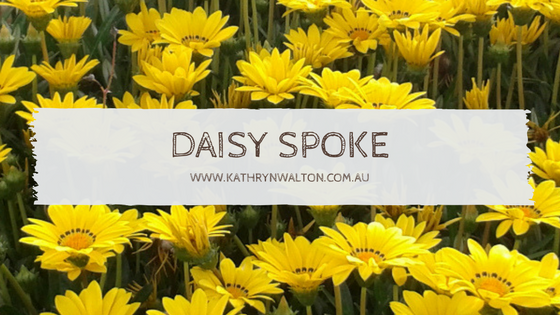
Many of us have grown up believing that to be a ‘good’ person we must always put others before ourselves. Whilst it’s important to care for others and contribute to society in positive and constructive ways, it’s very unfortunate that many people stop caring for themselves and find it difficult to ask for help. We don’t want to burden our families, friends or even our doctors with our ‘problems’ so we tell ourselves that things will get better soon if we keep going, keep pushing on, put on a brave face and try to figure things out for ourselves. There can be a lot of shame and worry that stops us seeking help.
It’s okay, and in fact completely normal, to have moments of despair, anger, sadness, disappointment, grief, anxiety, frustration and confusion. When we accept this is a normal part of being human, it can be a little easier to reach out and ask for help, or share our upsets with someone else. There are different ways you can access help without feeling like you are being burden on others around you.
1. Counselling
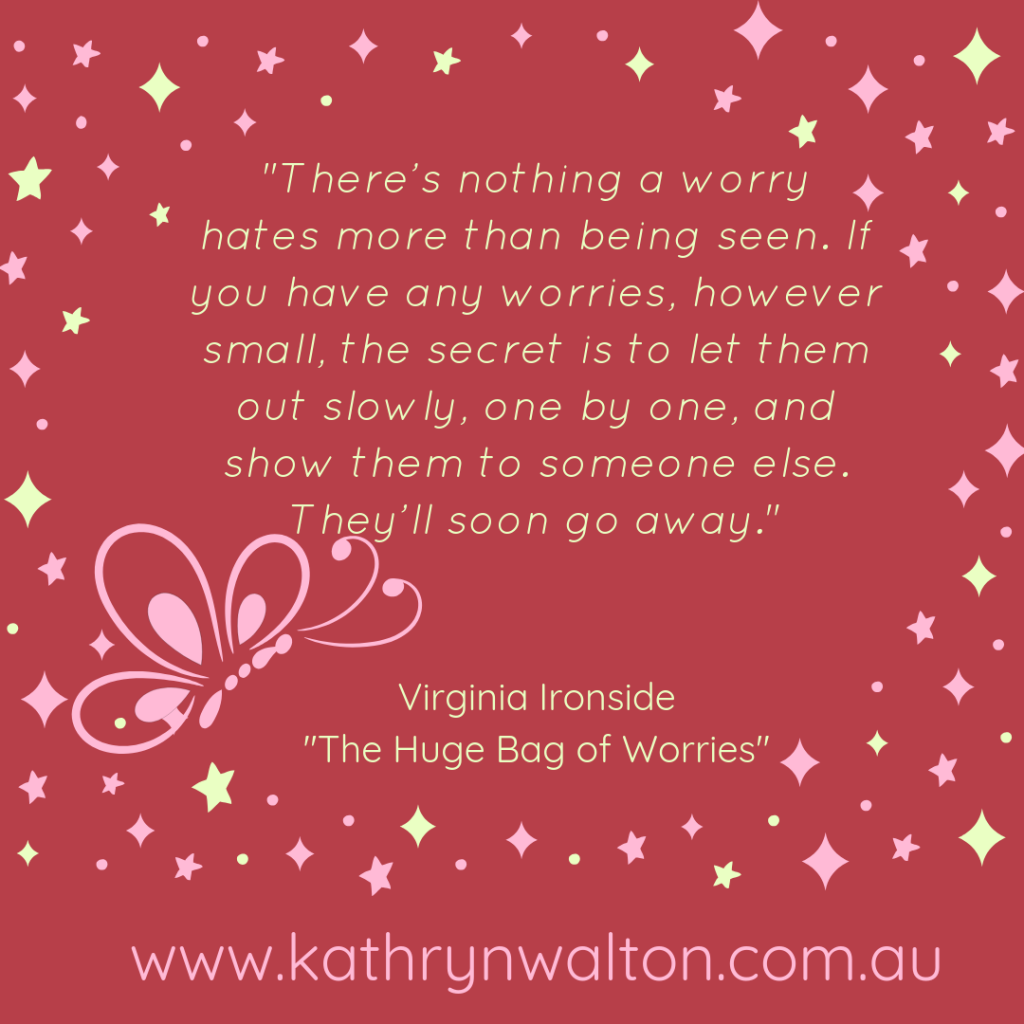
My clients often tell me they come to counselling because they want a safe, confidential, unbiased space to talk through life’s challenges and unload the heavy issues they’ve been carrying. Counselling can also help you problem-solve, prioritise, and develop new skills and strategies. There are many types of counsellors so I recommend talking to your GP who can match you up with a counsellor to meet your needs.
GP Mental Health Treatment Plan
If your GP creates a Mental Health Treatment Plan for you, they can refer you to an accredited Mental Health Worker such as an Accredited Mental Health Social Worker, psychologist or other mental health worker with a Medicare Provider Number. You can then claim a rebate from Medicare for up to 10 sessions. Some Mental Health Workers bulk-bill or offer discounts for Seniors or Health Care Card holders.
Urgent Help
If you are feeling very stressed or suicidal, your GP or hospital doctor can refer you to a service that is ready to respond and support you very quickly.
Self-refer
If you prefer, you can self-refer to a counsellor but you will not be able to claim a Medicare rebate. You may be eligible to claim a rebate through your private health insurer however it is important to check before going ahead.
Public Health
Other services are available through the public health system which may be a good fit for your needs too. Your doctor can give you guidance on the best service for your needs.
2. ‘Low Intensity’ Face-to-Face Support
If you don’t think you need counselling but you’d like a bit of support, you may be able to participate in a local group or individual program such as mindfulness training or coping skills training. Once again, the best way to get connected with the right service is having a chat with your GP. Your regional PHN website may also also list these services. Many ‘Low Intensity’ services are funded or subsidised by the Federal Government or not for profit organisations which makes them more affordable.
(For example, if you live in the Darling Downs and West Moreton region you might like to have a look at a clickable map with a list of mental health services.)
3. Online Services and Supports
If you don’t think you need to see a professional, you can access online services and supports. This is not a substitute for individual counselling, but it can be a terrific way of finding information and support from the privacy of your own home. I suggest using websites that are supported or authorised by Australian government bodies or universities so that you know you are getting the best evidence-based information and support. Here are a few recommended websites to get you started:
Black Dog Institute
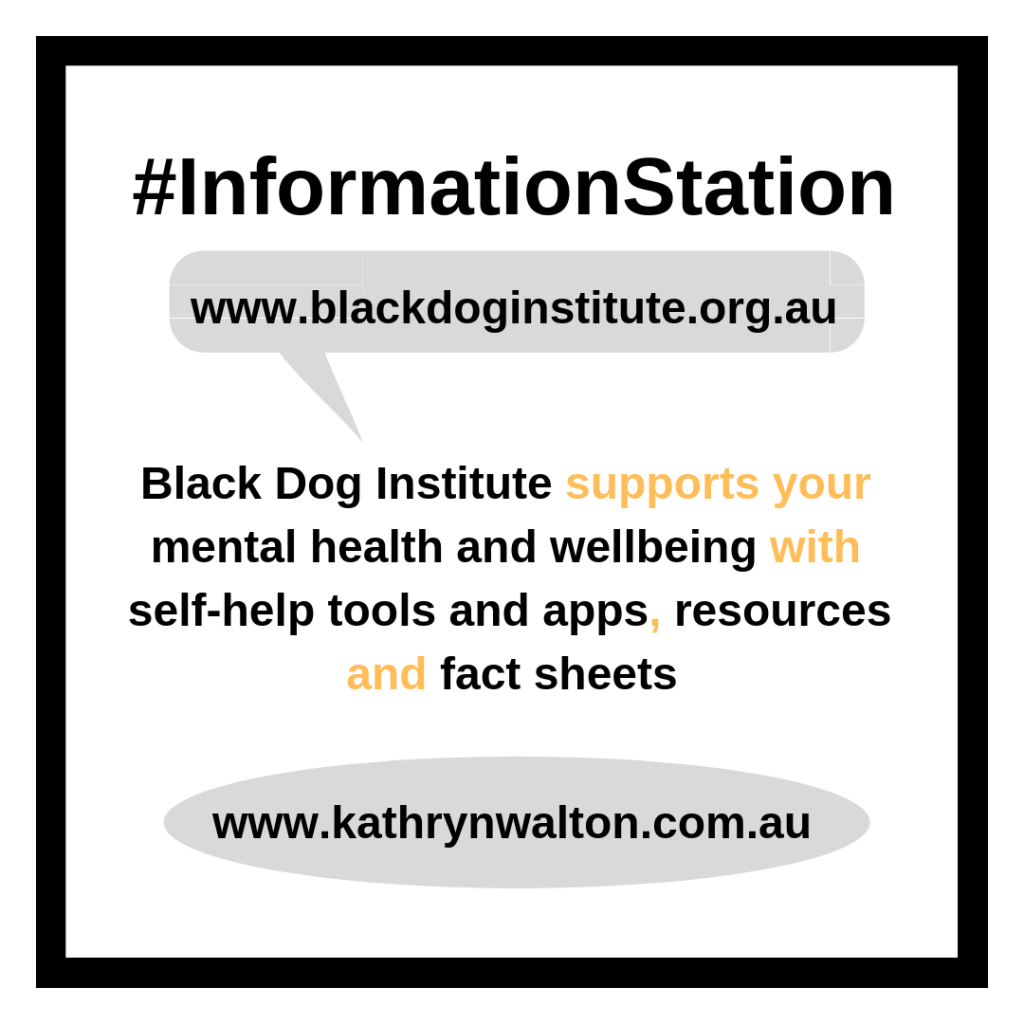
Black Dog Institute translates world leading research into easy-to-understand information to build a mentally healthy world. On this website you can find:
- Self help tools and apps
- How to help someone else that you are worried about
- Fact Sheets on mental health topics including:
- depression
- anxiety
- Managing your mental health and well-being with the Internet
Beyond Blue
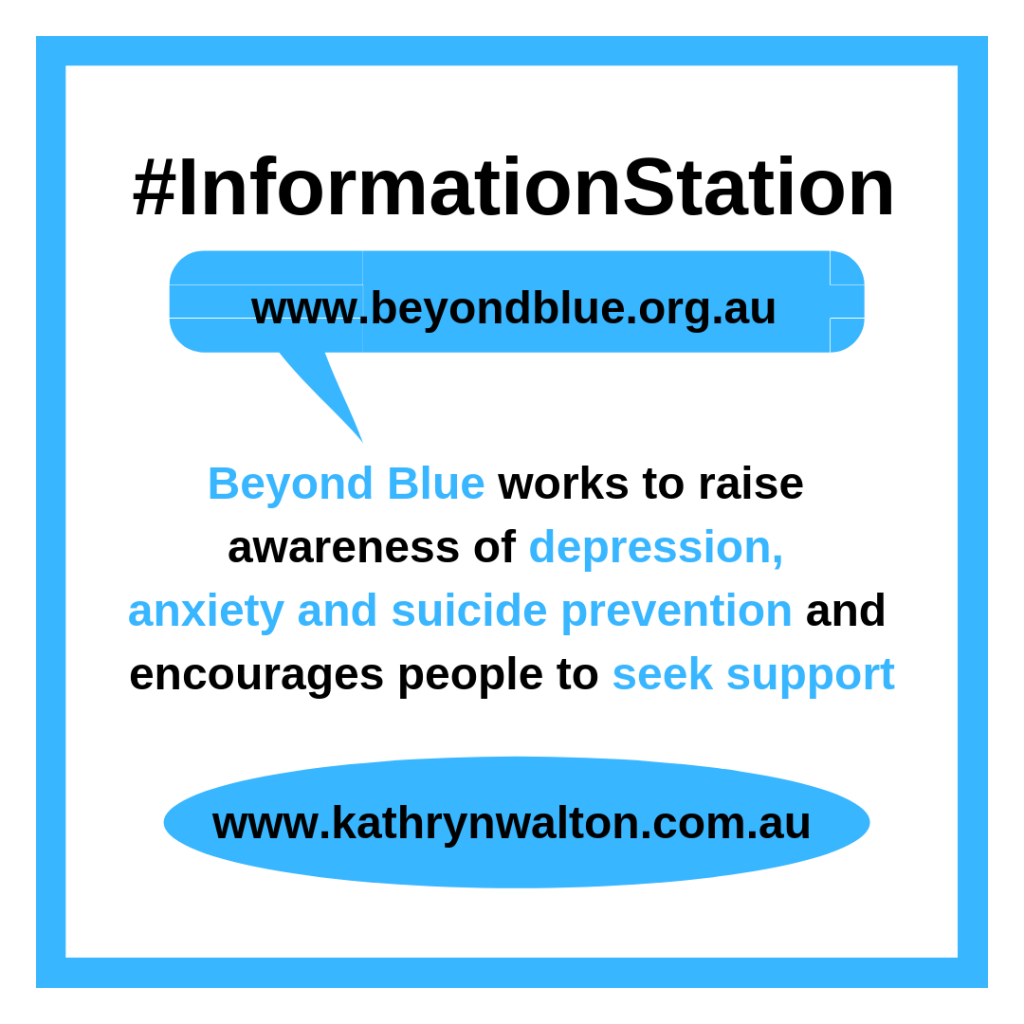
Beyond Blue provides information and support to everyone regardless of age or where you live. On this website you can find:
- Support services for yourself or someone else
- Information about mental health including anxiety and depression
- Online forums
- Online web chat service (you can text or type a conversation with a support worker)
- Phone and email support services
DV Connect and Womensline
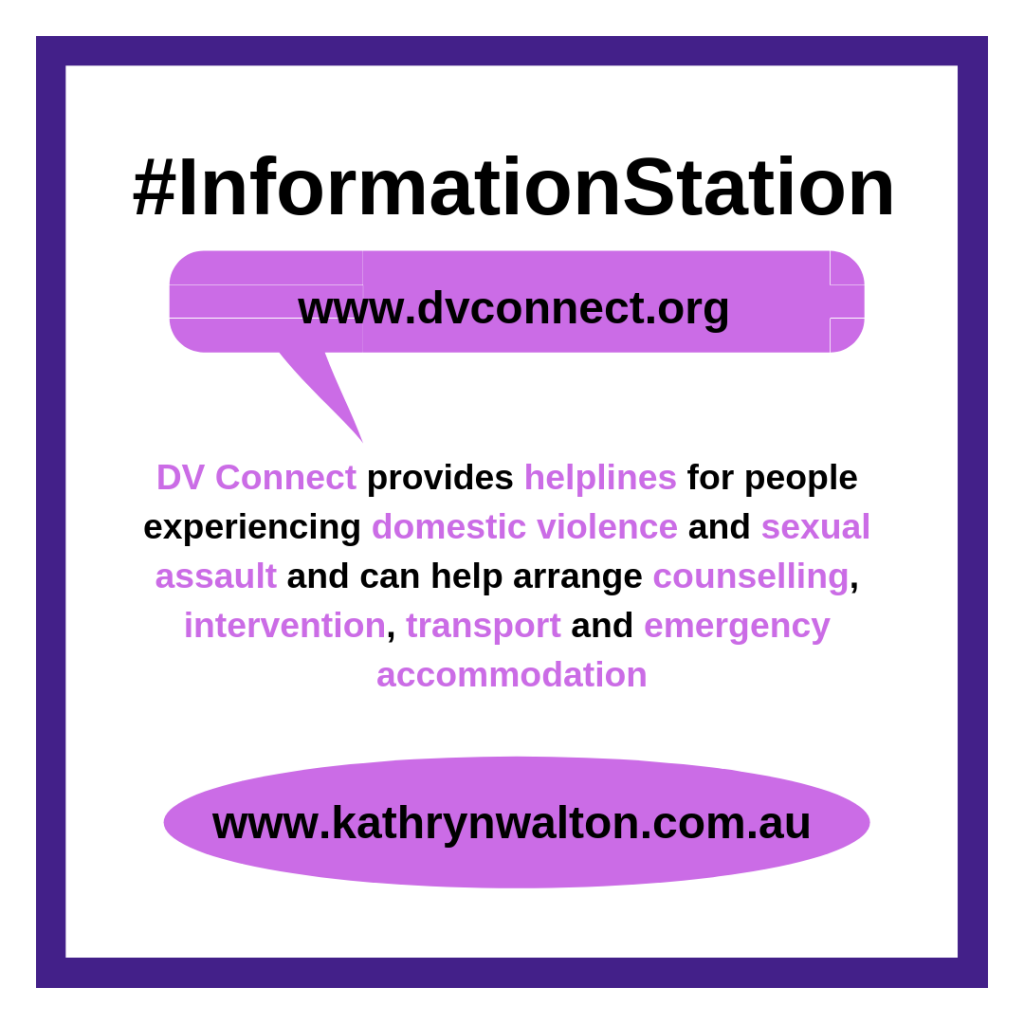
DV Connect Womensline is the only statewide telephone service offering 24/7 support for women who are experiencing domestic or family violence. They offer free, professional and non-judgemental telephone support wherever you live in Queensland. They can arrange practical assistance such as crisis counselling, intervention, transport and emergency accommodation for Queensland women and their children who are in danger from a violent partner or family member. Browse the website or call 1800 811 811 (free call from any public phone).
Men’s Line

Men’s Line offers telephone and online counselling for men with family and relationship concerns or mental health concerns. On this website you can find information about:
- anger, anxiety, depression, stress, responsible drinking
- relationship problems
- family violence
- how to help yourself or someone else who is having suicidal thoughts
- telephone, online chat, and video chat counselling
Jean Hailes for Women’s Health
Jean Hailes for Women’s Health combines research, clinical care and practical education for women and health professionals. They translate and disseminate research and medical evidence into easy to understand health information. The website includes information about a very wide range of women’s health topics and includes:
- booklets, fact sheets, articles
- podcasts
- webinars
- recipes
- tutorials
- workplace health
- Women’s Health Week
Do YOU have a favourite online resource? I’d love to hear! Send me an email with your tips and hints!

Discovering mountain biking as life’s ultimate parallel universe in her middle age, Kathryn Walton shares information and reflections in ‘Daisy Spoke’ that inform, inspire and empower women to a healthy and active lifestyle.
